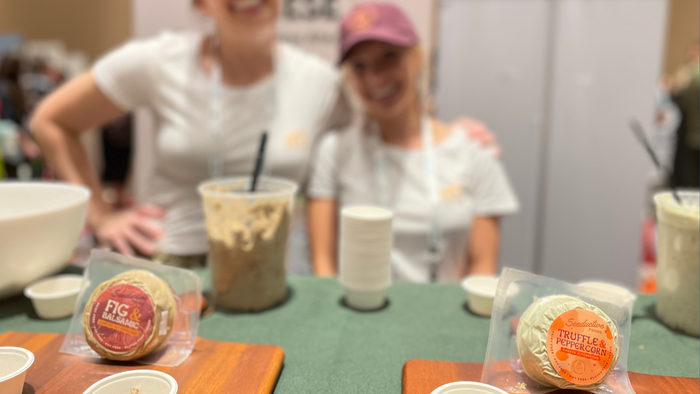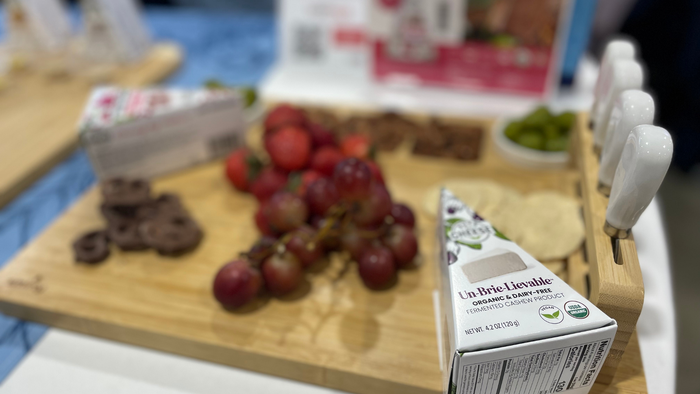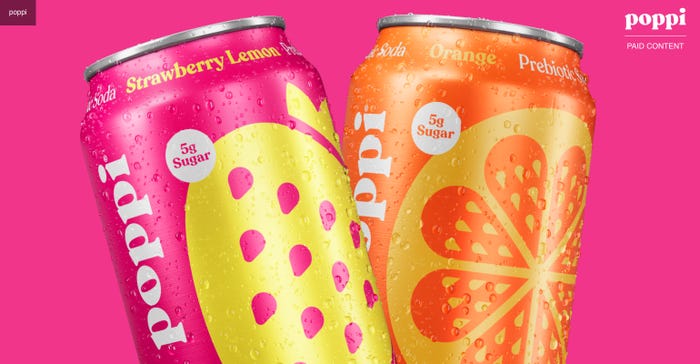Plant-based cheese finally moves into the spotlightPlant-based cheese finally moves into the spotlight
After years of experimentation, plant-based cheese makers have crafted products with the tastes, flavors and consistencies consumers want. Take a bite of their stories.

Just a few years ago, alt-meat brands like Impossible Burger and Beyond Meat captured the national CPG zeitgeist with widespread media coverage and brand adoptions by mainstream food outlets like Burger King and Carl’s Jr. And anybody who visited Natural Products Expos beginning in 2022 witnessed an explosion of plant-based nuggets, shredded meat, fish, meatballs and other products.
Similarly, alternative milks like oat and almond have commanded immense attention for years. But cheese? Plenty of brands vied for consumer love and shelf space. But few of them wowed traditional cheese lovers who loved assembling cheese plates. Most of the brands were shreds in bags, spreads in tubs or shrink-wrapped slices.
But Natural Products Expo East in September revealed a shifted dynamic. In many ways, it served as plant-based cheese’s big debut. And this time around, the cheese options were at least as prominent as alt meat and milk.
“It’s amazing how much it’s developed over the past couple of years,” said Alexandra Hickey, senior director of grocery merchandising at Misfits Market. “The texture, the flavor, the range of flavors and the transparency with ingredients. We’re definitely seeing an uptick in products like that. People want to know what’s in their products, and they want to be able to pronounce all of the ingredients.”
Just in time for the 2023 season of entertaining, with Thanksgiving and the holidays around the corner, superb cheeses made from ingredients like cashews and pumpkin seeds now are landing on grocer’s refrigerated shelves. Few of them, however, just got started. The route from R&D to products on shelves has been especially long in the alt-cheese category.
“A lot of this is trial and error over years and years,” said Dina DiCenso, the co-founder of RIND in Brooklyn. “From talking to people in traditional dairy, everyone faces the same problems. You’ve got to be on top of maintenance and cleanliness, it’s hard to find people who understand the science behind it, and harder to find people who understand how organisms interact with non-dairy proteins and fats. That’s the biggest challenge.”
RIND, which served hunks of its cheeses on crackers at Expo East, offers especially luscious, fine blues and camemberts—gorgeous on a cheese plate—along with mass-market (and less fussy to make) cheese slices in a line called Veggie Underground, crafted from vegetables like carrots, parsnips and bell peppers.
A lack of cultures that transform non-dairy substances into cheese represents one reason that high-quality vegan cheeses have not yet emerged in abundance, said DiCenso.
Another Expo East exhibiting cheesemaker, Philadelphia’s Bandit, also crafts fine cheeses that would align crisply with a gourmet shop’s cheese selection. Founder and CEO Bo Babaki agreed with DiCenso that a scarcity of cultures slowed down the emergence of exquisite plant cheeses.
“I’m limited to about three different surface cultures that we can use, but there’s so many more made for dairy companies,” said Babaki, who cave-ages many of his products. “One project I’d like to work on would be to make a more extensive library of vegan cultures that will let people make many more styles of cheese, like Swiss. The holes in Swiss are there because there’s a specific bacteria that causes the expansion that leads to holes. And that’s also where the flavor comes from. It’s a specific fermentation process with a specific culture, something we don’t have much right now in vegan cheesemaking.”

Both Bandit and Rind rely upon the fat and protein content in cashews to yield their cheese excellence. But Seeductive Foods, which also exhibited at Expo East, turns to regenerative hemp and pumpkin seeds, which it cultures and ferments like traditional dairy. By skipping the cashews, Seeductive offers vegan options to people who steer clear of nuts. In fact, the brand’s products are top-nine allergen-free.
At Good Planet Foods in Washington State, cheese gets made with olive oil—the first of its kind on the market, said Marketing Director Virginia Wong. The brand, which launched during Expo East last month, is now hitting shelves in Sprouts, and soon will go national with Whole Foods Market.
Mark Kavanaugh, head of research and development, “started experimenting in his home kitchen, he actually pulled out a standing mixer and started adding different plant proteins and starches and real ingredients," Wong said.
"You’re seeing a lot of things using processes like precision fermentation,” she said. “We wanted to kind of go back to the basics in the kitchen.”

The booth for the Canadian cashew cheese brand Nuts for Cheese showcased its products on a cheese board at Expo East—a nod toward the cheese’s ability to shine on its own. The fermented cheeses come in brie, gouda, cheddar and other flavors and are meant for spreading and slicing.
Shire’s Premium Plant-Based Cheese also focuses on the spreadable cheese sector. But instead of relying on acidification for flavor, the brand also ferments its products, all crafted in the historic town of Peterborough, NH. Shire’s also rejects inflammatory oils, thickeners and gums.
Getting a product from idea to a booth at Expo East too years of “good mentorship,” said founder Adam Hamilton.
“We brought in folks from the dairy cheese industry to give us tips on what they know, to get really good at our craft,” Hamilton said. “This is not an overnight story. This is a decade’s worth of homework and refinement.”
About the Author
You May Also Like





